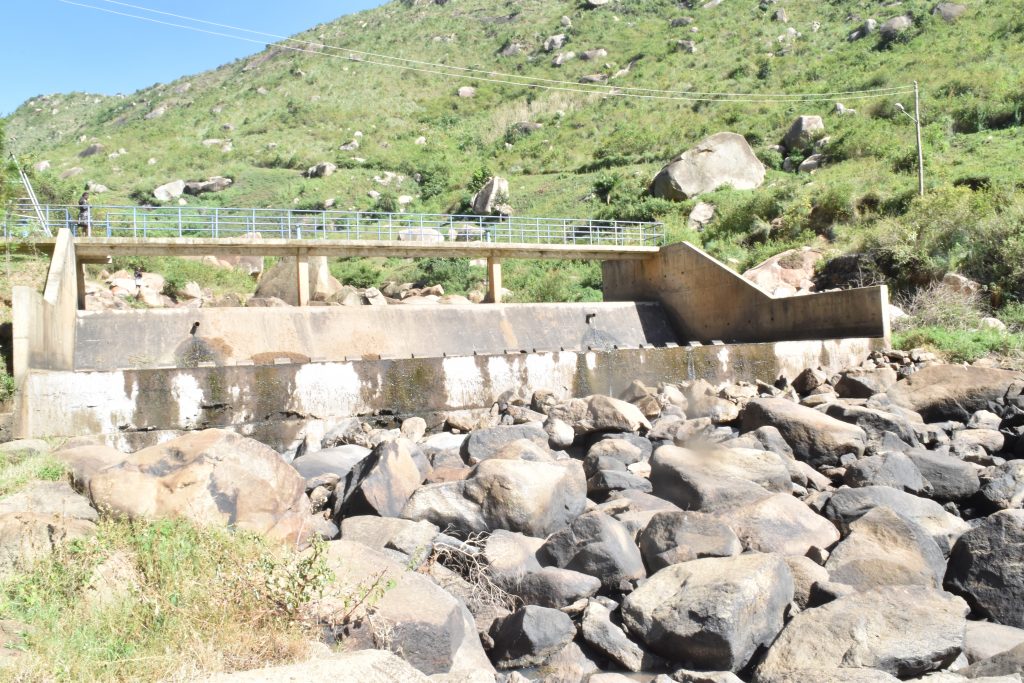By Thomas Odongo,
MD Kisumu Water and Sanitation Company Ltd.
Climate change threatens all of us and water is the primary vehicle through which we feel the impacts of climate change. To effectively address both water and climate challenges, we must bring climate change and water to the same table – into the same conversation: tackling them as one. The Water and Climate Coalition is a community of multi-sectoral actors, guided by high-level leadership and focused on water action, intent on making this happen.

Climate change is no longer a future problem, it is a now problem and devastating impacts are spreading very fast across the globe and growing even stronger. Recently we have witnessed the wild fires that have caused enormous destructions across continents. Globally countries have been brought together to place commitments towards reduction of temperature levels of 1.5⁰C, which is important because every fraction of a degree of warming results in the loss of lives and damage of livelihood.
In Kenya, the Government through our President H.E Uhuru Kenyatta acknowledged in the COP 26 summit that indeed we are already facing the negative impacts of climate change and asked leaders to put up detailed rules and procedures for implementing the Paris Agreement which will be finalised and a clear way forward for a climate-resilient pathway set. We also expect that the agreement will be sufficiently inclusive to accommodate the needs and priorities of developing countries and in particular, the special needs and circumstances of Africa.

Water companies must play a key role in ensuring sustainability in service delivery. However, given the complex measures needed to ensure sustainable management of water resources amid climate threats, achieving this task will require increasingly significant collaboration between development partners, multi-stakeholders and regulatory bodies.
KIWASCO has not been left behind as we now focus on mitigating the effects of global warming and at the same time finding new technologies to adapt to the impacts of the rising temperature in the globe. We partnered with the International Water Association (IWA) who provided us with technical support on developing a Climate Resilient Water Safety plan (CR-WSP) among other interventions. Water safety planning is a comprehensive risk assessment and risk management approach that encompasses all steps in water supply from the catchment to consumer point. It is a sure way of ensuring safe-drinking water by; knowing the system thoroughly, identifying where and how problems could arise, putting barriers and management systems in place to stop the problems before they happen and making sure that the system works properly. A Water Safety Plan is recognized as the most reliable and effective way to consistently manage water supplies to safeguard public health. For the successful development and implementation of a CR-WSP, stakeholder engagement is critical, all the relevant institutions and sector players are needed to make the goal achievable.
As water utilities experience the effects of global warming, we should also take stock on the amount of greenhouse gases we emit from our waste water treatment facilities. Because we have a huge role to play in the adaptation and mitigation of climate change effects. Water companies should reduce by half greenhouse gas emission by 2030 and reach a net zero by the year 2050.
To achieve this goal toward achieving net -zero by 2030 KIWASCO is committed to;
- Work towards reducing methane emissions from the waste water treatment plants by finding partners to tap and reuse methane gas.
- Strive toward improving energy efficiency by sourcing for green energy as the global water sector accounts for 4% of power consumption.
- Increase the use of self-generated renewable energy
- Focus on water efficiency through reduction of Non-Revenue Water and advocate for conservation and preservation of catchment areas by practicing afforestation in depleted areas.
- Water companies need support to strengthen the resilience to climate change and also integrating climate change into their strategic plan to enable us cope with the effects of global warming.
- Engage communities through water advocacy to protect water resources from pollution and soil erosion.
- Sensitize of staff on their actions towards mitigating the effects of climate change
- Integrate drought and early warning systems into water and sanitation operations, thus will improve early planning on how to mitigate it’s effect on the provision of water and sanitation.
Global warming is here with us, and since all of us contribute towards it, we are equally part of the solution.
